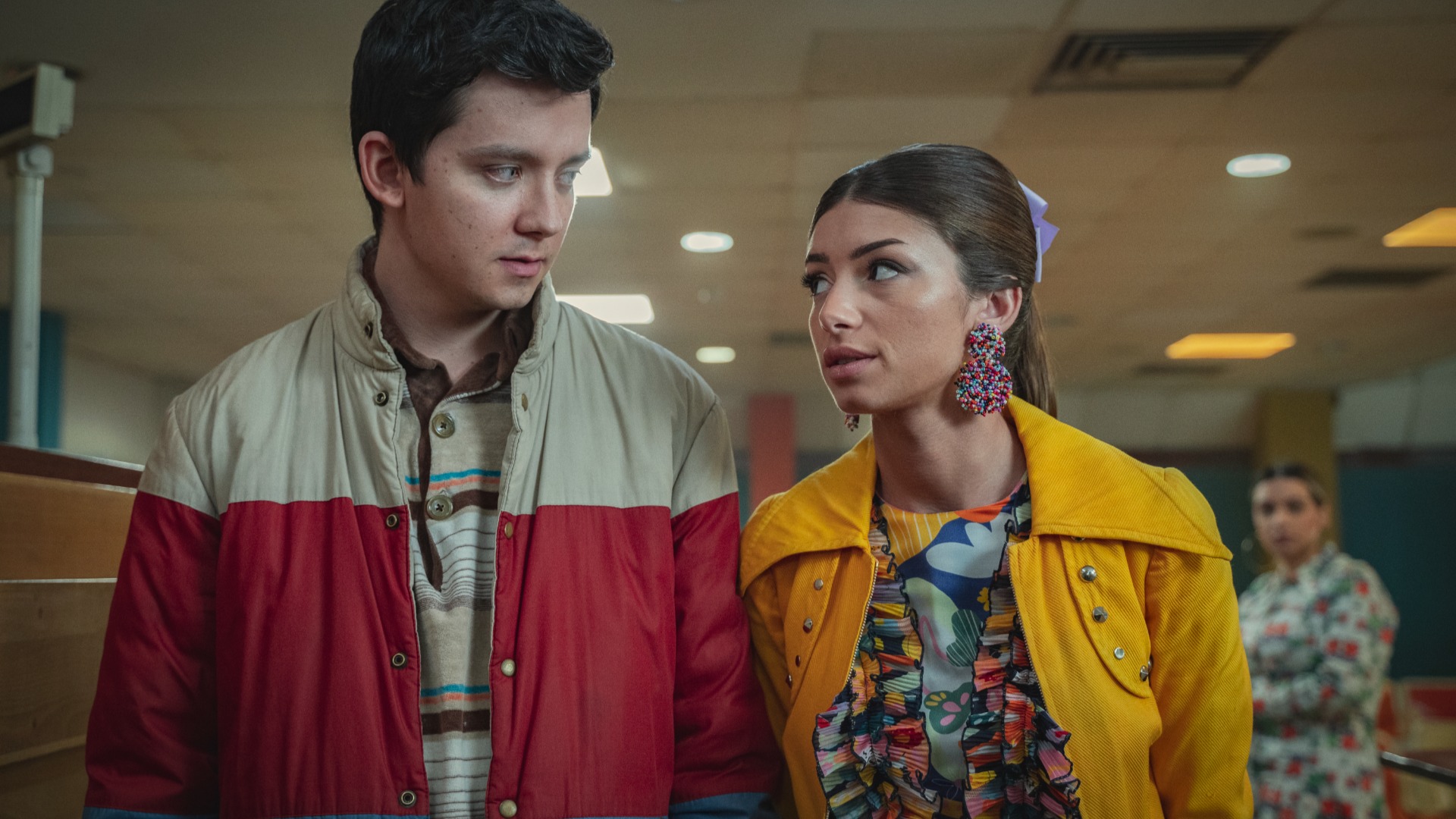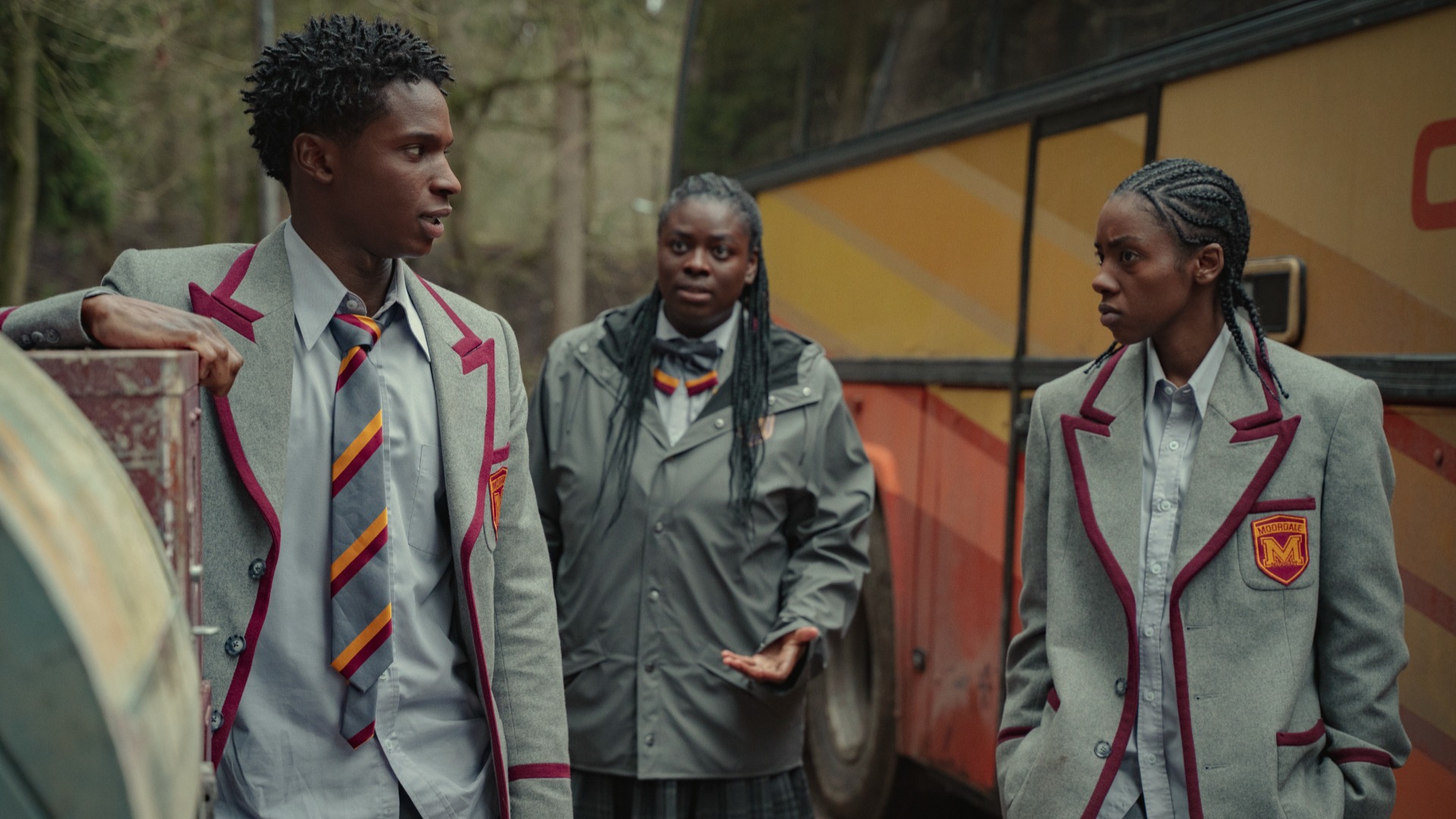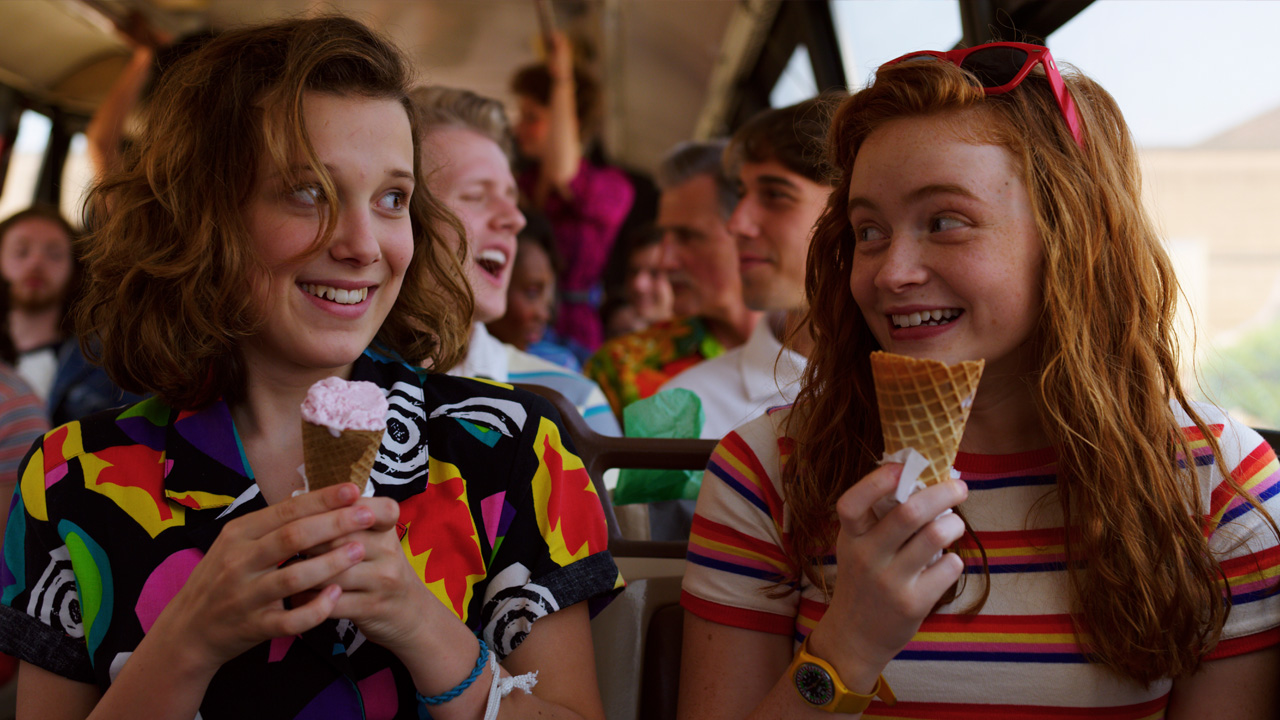Sex Education season 3 shows how to keep teen drama tropes feeling fresh
Why Sex Education is a worthy addition to the teen drama canon

Teen dramas are rife with tropes – Joel Gallen even made a movie about it, with 2001's Not Another Teen Movie parodying the tired stereotypes that permeate anything aimed at the under-20s. Part of this is, of course, down to the fact that comedy relies on tropes for humour, but part of it is also a disregard for the intelligence of the intended audience.
Netflix's comedy drama Sex Education returns for a third season, returning to Moordale Secondary, AKA "Sex School," which has become somewhat notorious due to, among other things, its chlamydia outbreak and sex-themed musical. And, as Moordale is to other schools in its fictional universe, so Sex Education is to other teen dramas – something a bit different.
Teenage dreams

While the first movie to really take teens seriously was Rebel Without a Cause in 1955, it wasn't until the '70s that teen movies really came into their own with titles like George Lucas' American Graffiti. The genre was further popularized by the films of John Hughes in the '80s, like The Breakfast Club, Pretty in Pink, and Sixteen Candles, as well as darker movies like Heathers, in which a murderous Christian Slater woos Winona Ryder.
Since then, teen dramas have been segregated into the wholesome and the debauched, with Disney franchises like High School Musical and Camp Rock co-existing alongside more salacious shows Gossip Girl and movies like Jennifer's Body, featuring a (literally) man-eating Megan Fox. Meanwhile, the present day has brought us shows like Euphoria, Riverdale and, of course, Sex Education, where the two categories are not as clear cut as they once were.


The teens in Sex Education pay homage to those that came before them. Despite being set in the UK, for example, the students of Moordale Secondary School don't wear school uniforms – until one is imposed by new tyrannical headteacher, Hope (Jemima Kirke), in season 3, that is. And, like the stars of many teen dramas before them, none of the actors in Sex Education are actually teens.
However, the characters they play diverge from the stereotypes, with showrunner Laurie Nunn approaching the genre with her tongue in cheek. Take Eric (Ncuti Gatwa), for example. He is, for all intents and purposes, the Gay Best Friend. Plus, he's Black, and his best friend Otis (Asa Butterfield) is white, a dynamic which usually equates to the former being nothing more than the sidekick to the latter. However, Eric is just as fleshed out as Otis and, particularly in season 2, becomes the more likeable and interesting character of the pair.
That approach is present throughout the show. Aimee (Aimee Lou Wood) starts the series as your typical popular and ditzy blonde, with a sprinkle of girl-next-door. However, when she befriends Maeve (Emma Mackey), the archetypal rebel girl, the pair grow and develop in tandem into people that are far more multifaceted. In season 2, Aimee is sexually assaulted while on the bus to school. This was handled sensitively in the previous season, but television has a habit of leaving storylines like that behind once a new season begins. Not so here. The consequences of what happened to Aimee are explored further in season 3 alongside the repercussions on her romantic and sexual relationships.
Bringing all the latest movie news, features, and reviews to your inbox
Breaking new ground

The new season on Netflix, thanks in part to its desire to do things differently, helps the series solidify its place in the teen drama canon
A new character introduced in season 3 is Cal, played by Dua Saleh, a non-binary student at Moordale Secondary. They come to blows with headteacher Hope over their refusal to fit neatly into the "male" and "female" uniform categories. While this may sound like a cliche storyline for a non-binary character (although the term "cliche" implies an abundance of examples, of which there aren't many when it comes to gender non-conforming characters in mainstream TV), their relationship with popular head boy Jackson (Kedar Williams-Stirling) is also explored.
And, of course, not all characters are created equal, in any show – the most one-dimensional characters in the series so far are, arguably, the 'Untouchables', Moordale's popular mean clique. Ruby (Mimi Keene) is one of them, but she comes into her own this season with insights into her home life and we see more of her thanks to her – covert – affair with Otis.
Sex Education isn't perfect. These are all fascinating and worthy characters, but, especially in the new season, the show sometimes spreads itself a little thin trying to give everyone their time in the spotlight. Where the show excels in delving into some issues, it seems oddly hesitant to explore others – in season 3, some characters' mental health problems, like Jackson's anxiety, are glossed over in a creative decision that seems at odds with the rest of the show's ethos. But Sex Education is at least trying to be something new – and succeeding. The new season on Netflix, thanks in part to its desire to do things differently, helps the series solidify its place in the teen drama canon.
Sex Education season 3 is streaming on Netflix now. Want more? Check out our list of the other best Netflix comedies that you can watch right now.
I’m an Entertainment Writer here at GamesRadar+, covering everything film and TV-related across the Total Film and SFX sections. I help bring you all the latest news and also the occasional feature too. I’ve previously written for publications like HuffPost and i-D after getting my NCTJ Diploma in Multimedia Journalism.


